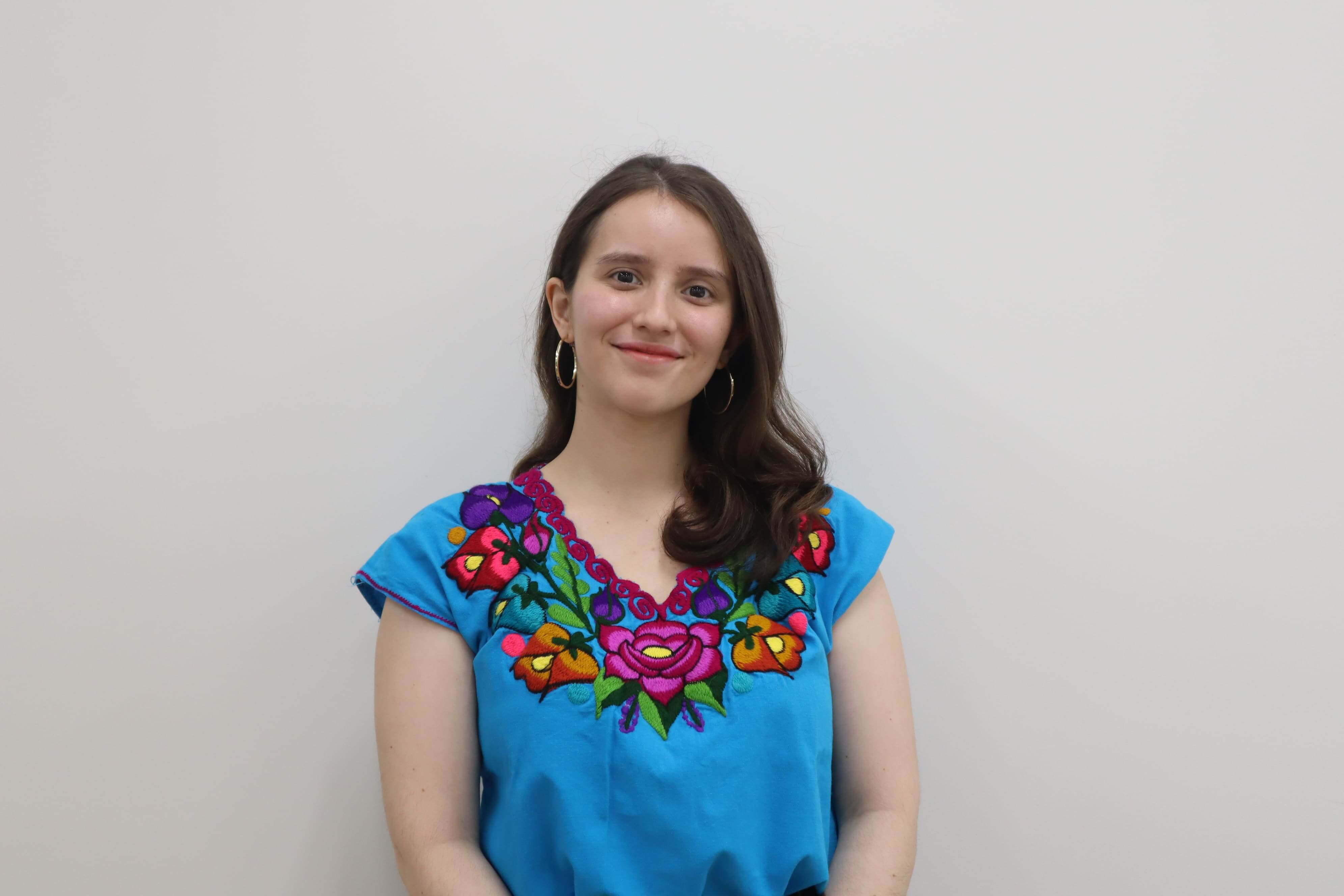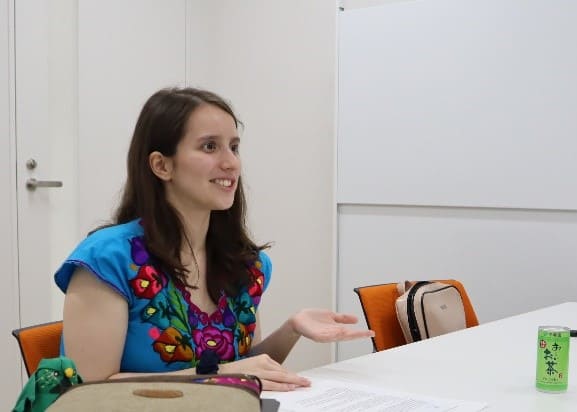
Ana wearing ‘huipil’ – Guatemalan traditional clothing
Ana arrived in Japan two and a half years ago from Santa Rosita in Republic of Guatemala.
She is studying computer science at Nihon Kogakuin College, located near JR Kamata station. For the first few months, she had difficulties adjusting to the new environment, but she is now leading a busy life, working part-time and preparing for her graduation next spring. She is also a Cool OTA-KU ambassador.
― Her first visit was a birthday gift for her ‘Quinceañera’
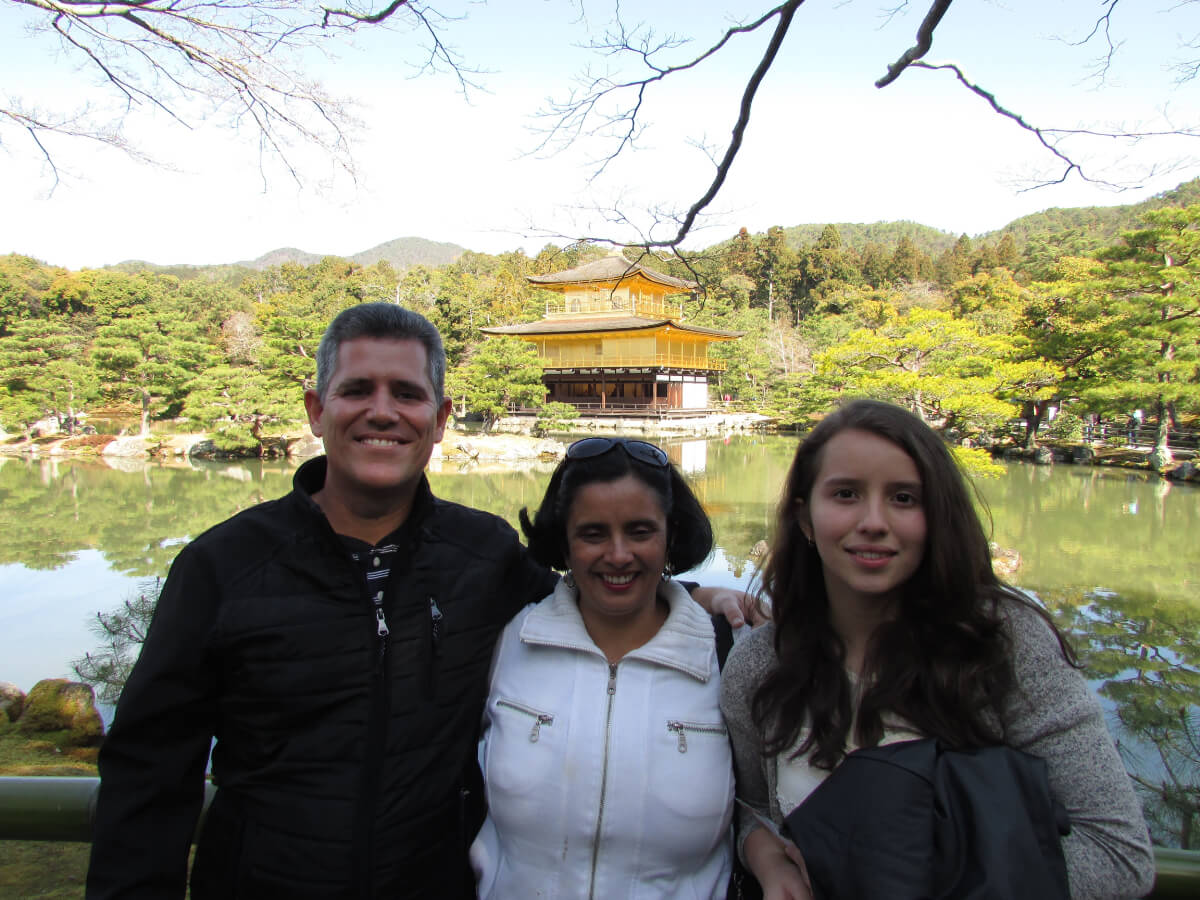
With my parents with Kinkakuji Temple in the background
‘A girl’s fifteenth birthday is a big event in Latin America. It’s like Coming-of-age day in Japan. Parents spend a lot for the occasion, and my dream of coming to Japan came true! I’ve always liked Japanese animation.’
Together with her parents, she spent two weeks travelling around Japan. Back then, they were all impressed by how safe the country was.
‘In our country, girls seldom go out on their own even during the daytime. I felt so envious seeing everyone, including small children, walking around freely wherever we visited’
― Making a decision to study in Japan
Her interest towards Japan gradually grew, so when she finished freshman year at college, she decided to take action. She said she had concerns about future after graduation in her native land.
‘Back then in Guatemala, we had few opportunities to study management using AI technology, so I couldn’t consider my own career plan in the area I was interested in. Meanwhile, I learned that Japan would offer Guatemalans a great scholarship program.’
‘After receiving a scholarship, I told my parents about studying in Japan. Of course, they were worried about me leaving for a faraway country, but they knew that Japan is a safe country for girls to live alone. That was the biggest reason they said OK.’
She told me that she felt ’super nervous’ about her level of Japanese, but the opportunity to broaden her horizon outweighed her concerns.
― Am I noisy?
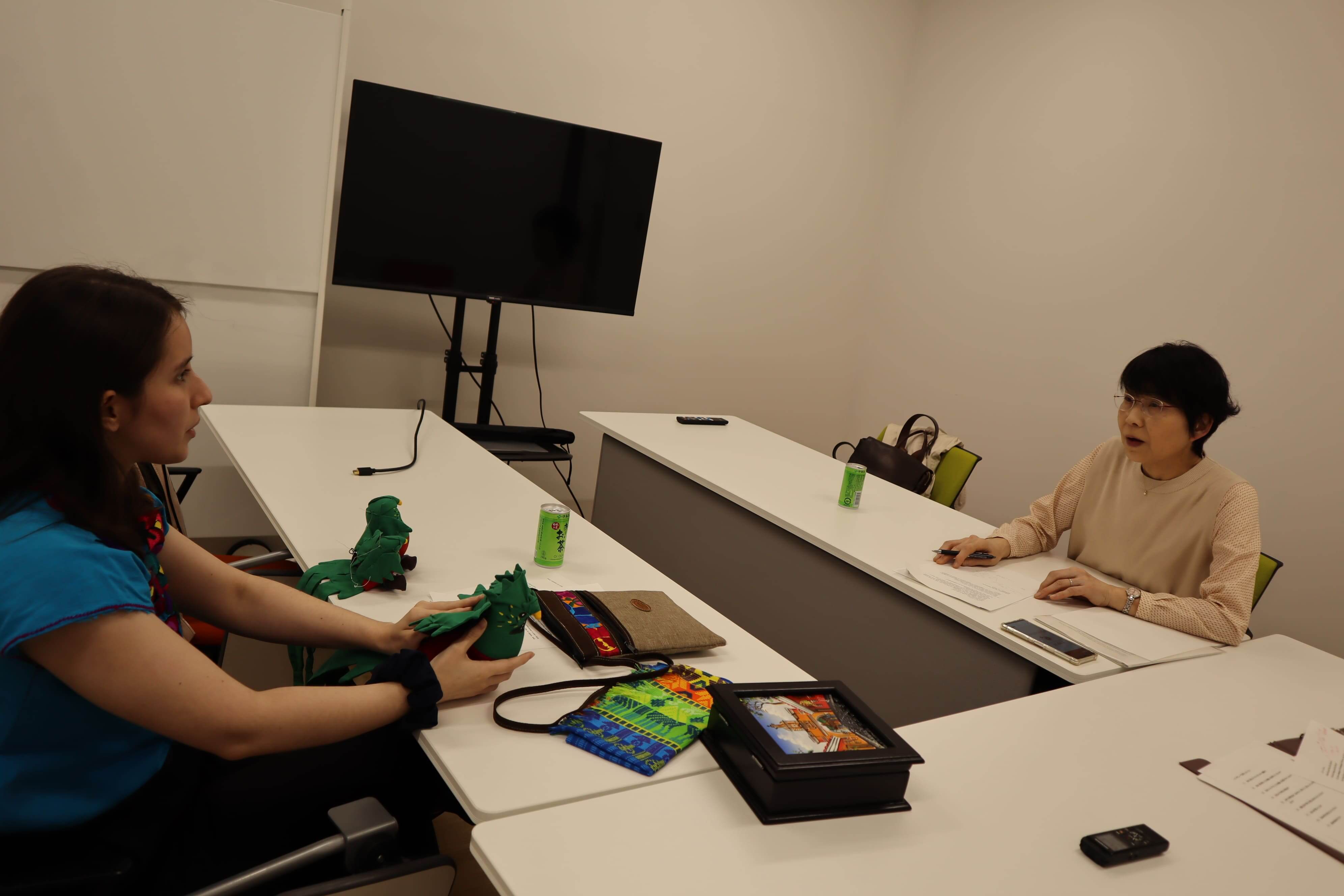
Ana speaking in the interview
‘My first culture shock was when I got a complaint about my loud voice. I was talking with my parents in my own room at an apartment house, and my flat mates felt I was too noisy. I’m keeping my voice down even now.’
Ana grew up in an ’always noisy’ atmosphere with upbeat music and people’s laughter, typical of Latin society. No doubt she was shocked.
‘Another thing is that they don’t show emotions directly even towards their friends. For instance, when I handed a carefully wrapped birthday present to a friend of mine, all I got was, “You didn’t have to do that.” I wondered if she wasn’t happy about the present.’
She needs to engage in “mental gymnastics” in a positive way when she receives somewhat unexpected and ‘cold’ responses from Japanese people.
― Keeping a low-profile on campus
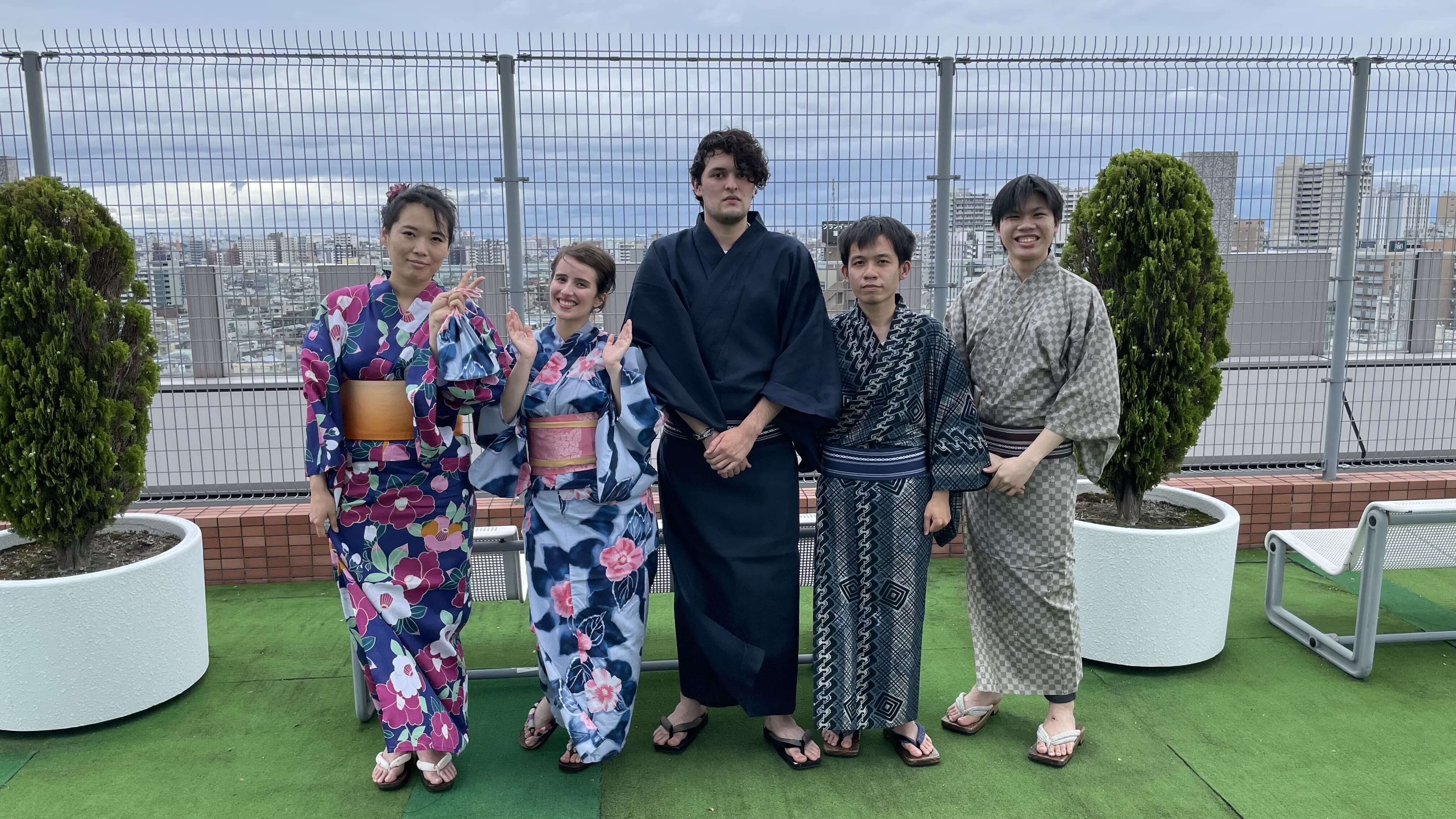
Wearing a kimono with friends at a school event
‘I was surprised that classes start with everyone bowing. I was even more surprised to see my classmates remaining silent in class – the complete opposite of classes in Guatemala, where teachers and students exchange lively conversations.’
At first, she responded to the teacher’s questions, but soon realized that it’s better not to ‘show-off’ in class.
Her school offers foreigners a cross-cultural program to understand Japanese custom and culture, which she found very helpful in smoothly adjusting to life here.
― Fitting into life in Ota-ku
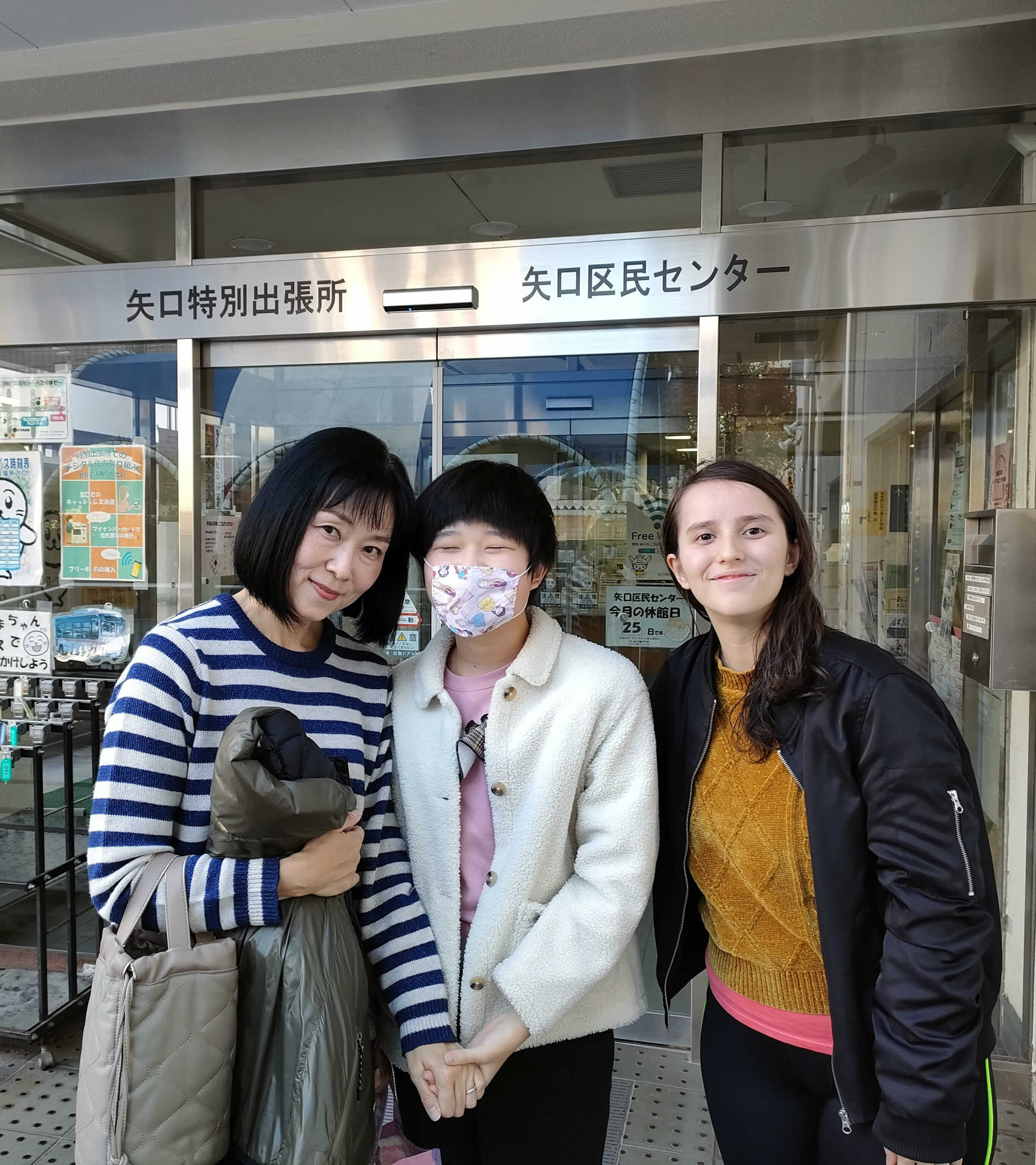
With my pupil and her mother at Yaguchi Swimming pool
‘Aside from my studies, I work part-time and do volunteer work. Until October, I worked at a restaurant in Terminal 3 of Haneda Airport. Surrounded by Japanese goods, I felt so happy. It’s one of my favorite places in Ota.’
She loves to meet people, and she is considering working as a tourist guide for her next part-time job. Currently, she is volunteering as an ambassador for Ota-ku and an instructor at Yaguchi Swimming pool.
“On Sundays, I teach swimming to children. We have fun splashing.”
― Request to Japan
‘I am sad to see Japan losing its beauty typical to the country. I understand that cities in Guatemala have also been Americanized, losing its traditional touch. I don’t think we should cerebrate other nations’ seasonal events, like Halloween.’
‘I also feel people in Japan wear their traditional kimono less and less, as we don’t wear ‘huipil’-our traditional clothing- in our everyday life.’
‘During my first visit at fifteen, I was kind of overwhelmed by the tranquility of Koya-san mountain in Wakayama. I believe Japan still has plenty of things and places to boast about. Every nation needs to maintain their own identity.’
― Future career
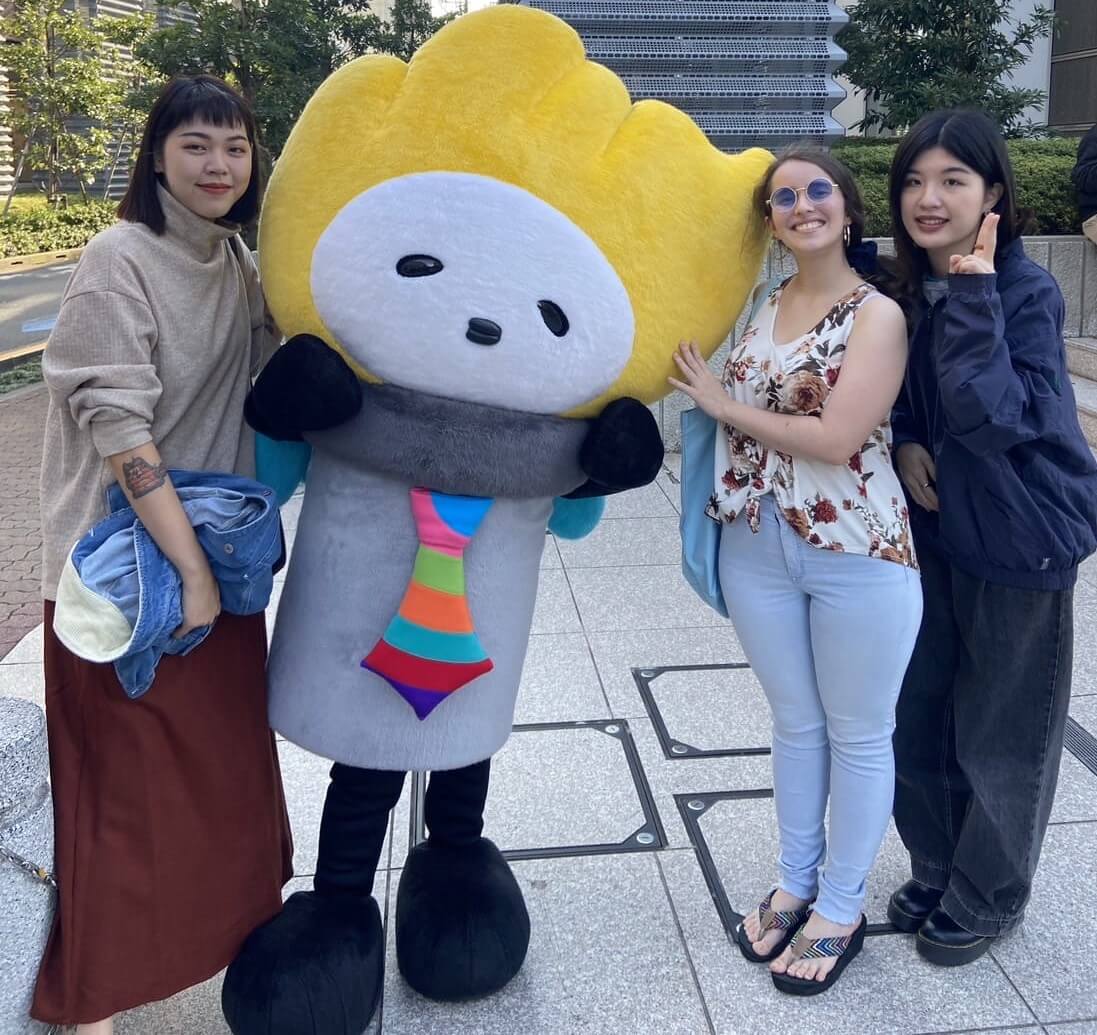
With my classmates and the school mascot
Now, Ana is busy studying for the Information Processing Engineer certificate, as well as working on her graduation project with her classmates.
‘I’d like to obtain a bachelor’s degree and then work full-time here in Japan. However, right now, nothing is settled.’
She already speaks Spanish (her country’s first language) and English. On top of that, her Japanese is progressing remarkably. Her future seems to be bright.
☆Editor’s note:

She showed up to our interview with cute stuffed animal of Quetzal, which is the nation’s national bird. Gradually expanding her horizon with her own feet, she seems to be enjoying her life in Japan to the fullest.
I sincerely hope that Japan will remain an ideal destination for young people like her. Like the Quetzal flying freely in the Mayan forests, fly towards your dreams, Ana!
Quetzal is said to pacify the souls of soldiers who lost their lives under Spanish rule. It is also the official currency unit in Guatemala.
Executive Committee for The Foreigner Next Door project in Ota-ku
Noriko Sakamoto



